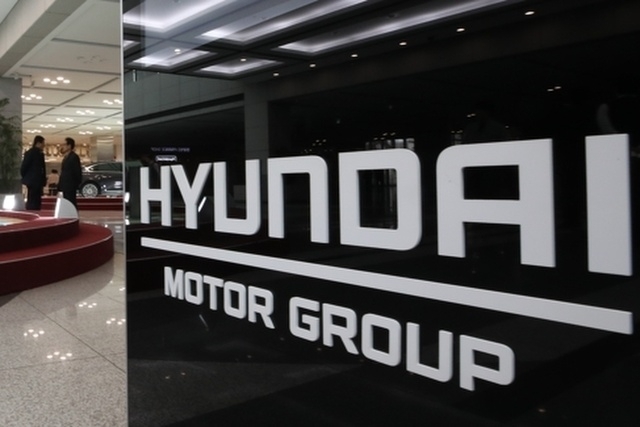South Korea’s auto industry, a key driver of the nation’s economic growth, is likely to go through throes of change as carmakers’ restructuring plans are gaining market support.
An advisory group consisting of five independent industrial experts said Sunday in a report presented to the management and the labor union of Hyundai Motor that it would be inevitable for the largest carmaker here to reduce its manufacturing workforce by 20-40 percent by 2025.
Stressing several changes the industry is to go through the fourth industrial revolution, the panels said that carmakers will shift from mere manufacturers to service providers in future mobility market and such transition would entail massive restructuring of its workforce and its production lines.
 |
(Yonhap) |
The global auto industry has been experiencing growing demand for green cars that require less components and less manpower as the production process itself is fast adopting automation technology. But such change might impose heavier burden on carmakers here, they said, citing high labor cost, low productivity and the incumbent government pursuing labor-friendly policies.
Reasons for carmakers to go ahead with massive layoff are evident, otherwise South Korea’s auto industry, as a whole, will collapse, they added.
Not only the panelists but also other experts in the industry agreed, saying a change must be carried out to transform the auto industry still heavily reliant on labor force.
“Labor productivity in the Korean auto industry is seriously weak,” said Lee Ho-geun, professor at Daeduk University of Engineering, referring to GM Korea’s 2017 decision to shut down its Gunsan plant, the newest manufacturing facility here. “There’s no clear reason for carmakers to keep their labor force numbers if the workers do not join forces (with management) to better deal with the industrial transition,” he said.
Hyundai is the only carmaker that generates considerable net profits here and holds the resources needed for a change. The problem is felt more keenly by the three smaller players -- GM Korea, Renault Samsung and SsangYong Motor -- which have been falling deeper into trouble due to piling debts and high labor costs.
“In November, Hyundai Motor might announce a plan to build a new plant in Indonesia. This clearly shows that carmakers have no reason to invest in the local auto industry,” said Kim Pil-soo, an auto engineering professor at Daelim University.
“But the real problem is that no one has a clear answer for that. The management fears the union’s threat to stage sit-in protest. The chances are slim that the union will accept the management’s restructuring plan, while the incumbent administration is obviously not friendly to business,” he said.
Carmakers who are in a fix are less likely to seek immediate changes, according to industry sources.
Hyundai Motor, for instance, has been locking horns over the labor’s demand to hire new workers to replace existing workers due to reach retirement age in the near future.
“The labor (side) is fully aware that we are not going to need as many workers in the future. We are working on reducing the number of workers by not hiring new and letting retiring workers go naturally,” said Park Byeong-chan, a PR manager specialized in labor issues.
Hyundai currently has around 35,000 workers at its assembly lines. Around 30 percent of the workforce is set to retire by 2025.
By Cho Chung-un (
christory@heraldcorp.com)








